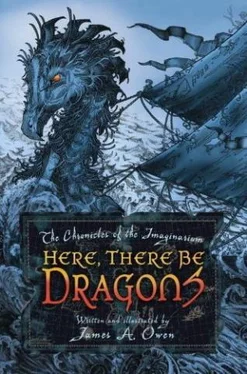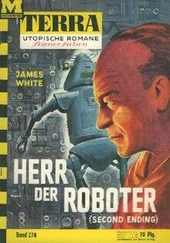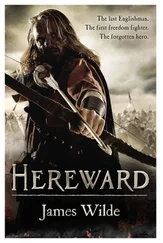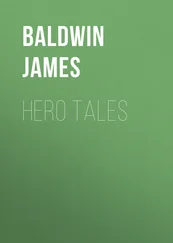James Owen - Here, There Be Dragons
Здесь есть возможность читать онлайн «James Owen - Here, There Be Dragons» весь текст электронной книги совершенно бесплатно (целиком полную версию без сокращений). В некоторых случаях можно слушать аудио, скачать через торрент в формате fb2 и присутствует краткое содержание. Город: USA, Год выпуска: 2006, ISBN: 2006, Издательство: Simon & Schuster, Жанр: Фэнтези, на английском языке. Описание произведения, (предисловие) а так же отзывы посетителей доступны на портале библиотеки ЛибКат.
- Название:Here, There Be Dragons
- Автор:
- Издательство:Simon & Schuster
- Жанр:
- Год:2006
- Город:USA
- ISBN:978-1416912279
- Рейтинг книги:5 / 5. Голосов: 1
-
Избранное:Добавить в избранное
- Отзывы:
-
Ваша оценка:
- 100
- 1
- 2
- 3
- 4
- 5
Here, There Be Dragons: краткое содержание, описание и аннотация
Предлагаем к чтению аннотацию, описание, краткое содержание или предисловие (зависит от того, что написал сам автор книги «Here, There Be Dragons»). Если вы не нашли необходимую информацию о книге — напишите в комментариях, мы постараемся отыскать её.
Pursued by strange and terrifying creatures, the companions flee London aboard the Dragonship. Traveling to the very realm of the imagination itself, they must learn to overcome their fears and trust in one another if they are to defeat the dark forces that threaten the destiny of two worlds. And in the process, they will share a great adventure filled with clues that lead readers to the surprise revelation of the legendary storytellers these men will one day become.
An extraordinary journey of myth, magic, and mystery, Here, There Be Dragons introduces James A. Owen as a formidable new talent.
Here, There Be Dragons — читать онлайн бесплатно полную книгу (весь текст) целиком
Ниже представлен текст книги, разбитый по страницам. Система сохранения места последней прочитанной страницы, позволяет с удобством читать онлайн бесплатно книгу «Here, There Be Dragons», без необходимости каждый раз заново искать на чём Вы остановились. Поставьте закладку, и сможете в любой момент перейти на страницу, на которой закончили чтение.
Интервал:
Закладка:
The Return to London
Much of the remaining voyage back was spent reexamining the Geographica and making notations on the maps that had reappeared since the defeat of the Winter King and the reawakening of the Shadowed Lands. Until just a few days before, the companions would have given—would have done—anything, for immediate passage home. Now it seemed as if England were in the dream world to which they might travel, if only they believed in it enough. And while they still believed in England, and London, and Oxford, and all the rest in the world of men, they had come to know that there was another world that was just as real. And they were no longer certain they wanted to leave.
“We’ve got a limited crew this time through,” said Charles. “Namely, us. Will the White Dragon have any trouble navigating the storm line?”
“It’s meant to keep people out, not in,” said Bert. “You’ll find it’s a much easier passage going east than west.”
John didn’t say what he was thinking—that he was already anticipating having to push through the storms again, going in the opposite direction. That he wanted to return to the Archipelago, and soon.
…twinkling in friendly greeting, the lights of London began to appear.
“Here’s something I never expected I’d be saying out loud,” said Jack, “but does anyone else find it comforting that there are at least three dragons shadowing us from above?”
High in the atmosphere, a greenish dragon and two smaller amber ones were diving and soaring in and among the clouds of the storm line, dipping their wings in greeting as they noticed that the companions were watching.
“The mariners had it wrong,” said Charles. “‘Here, There Be Dragons’ wasn’t a caution. It was a reassurance.”
“I think that would depend on your relationship with the dragons,” said John. “Remember—when we met, Samaranth’s other option was to eat us.”
As the White Dragon passed through the storm line and into more traditional waters, the dragons wheeled away and vanished into the ether.
In the distance, they could just make out the silhouette of Avalon, soft and verdant in the light of dusk.
“What do you say, lads?” asked Bert. “Want to stop off and pay your respects to the Morgaine?”
“Depends on the day, doesn’t it?” said Jack. “Tuesday we can manage, but I’d rather not catch Cul in a fouler mood.”
“Good call, Jack,” said Bert. “Next time, then.”
The sunlight faded quickly with the sudden smothering of clouds that marked the crossing of the last boundary. Soon, the familiar English fog had begun to coalesce around the ship, and then, twinkling in friendly greeting, the lights of London began to appear.
“Now I know we’re home!” exclaimed Charles. “Look at that water! It’s absolutely filthy! God bless the Thames!”
The companions’ happy laughter was cut short when the shrillness of an air-raid siren split the night air, shattering the stillness into pieces that fell with John’s smile. He looked to each of his friends, and then to Bert.
“We’re still at war,” John said, crestfallen. “We defeated the Winter King, but our world is still at war.”
“Well, of course it is,” Bert said, chiding. “The conflict in the Archipelago is not over either, for that matter.”
John furrowed his brow. “But we won. Artus is the new High King. We restored order in the Archipelago, and Jack freed the Shadow-Born.”
“Did we now?” said Bert. “Yes, we found the heir and reestablished the continuity of rule in the Archipelago. But just because a man sits on a throne doesn’t mean automatic fealty.”
“He has a point,” Charles put in. “There’s still the Troll Prince, Arawn, to deal with—and the Four Kingdoms have to come to grips with having a new king on the Silver Throne. Artus has quite a row to hoe.”
“Does that mean we’re going to remain at war until Artus has things in hand in the Archipelago?” said John.
“You misunderstand,” said Bert. “It isn’t like pulling a lever—as the conflict in one world is mirrored in the other, so is the peace and harmony we helped to set in motion in the Archipelago going to be reflected in this world. But the events that have occurred here must still take their course. There is the matter of free will to consider. We have removed the catalyst, true—but the world of men must still work to repair the damage that has been done, and then, ultimately, must choose peace.”
“I think I understand,” said John. “I suppose that somehow I was hoping for a more magical instant solution. Like ‘drink me’ and ‘eat me’ in Alice’s Adventures in Wonderland.”
“Now, John,” Bert chided. “That’s just a story. We should stay focused on the real world, don’t you think?”
The journey ended exactly where it began, at the dock in London where they had fled from the pursuing Wendigo. It had only been days, but it already seemed a lifetime ago—and in a sense, it had been.
“I have to let my wife know I’m all right, then I’m back to Staffordshire, I expect,” said John. “And then probably back to France, as I’m still enlisted for the duration. I just hope my absence hasn’t been long enough for them to notice and declare me missing—I’ll never be able to explain where I’ve been!”
“I’m overdue myself,” said Charles, “although I expect that the Oxford dons might be more forgiving than the military.”
“I still think I’ll be joining up before I start my term at Oxford,” said Jack. “After all, the war should be over soon anyway, right?”
“We can hope, young Jack,” said Bert. He turned to John. “I’ll check in now and again, to see how you’re coming along. I must admit, it’s a nice thought to realize that I can actually retire, knowing that the Geographica will be in good hands. Now I must go—I have to return the White Dragon to Ordo Maas, and then attend to the repair of the Indigo Dragon, bless her timbers.”
He bowed his head, chewing his lower lip, before continuing to speak. “There is one last detail to which we must attend,” Bert said, his voice trembling with emotion. “It has been tradition, these many centuries, for the Caretakers to add their names to those who came before. I would be honored if the three of you would do so now.”
“The three of us?” said Jack. “But John is the Caretaker.”
“The Caretaker Principia,” Bert corrected, “but there have always been three. The purpose of the other two Caretakers is to help the Caretaker Principia fulfill his responsibilities—and I daresay that’s what the both of you have been doing these long days.”
“Not to seem ungrateful,” said Charles, “but with Tummeler about to start a publishing empire based on the twin pillars of cookbooks and atlases—namely, the Geographica—what is the point of having Caretakers? Why take care of a book that everyone in the Archipelago will now have access to?”
“Remember what John told the Cartographer?” said Bert. “It’s about more than safeguarding a mere book—it’s a far greater responsibility than that. You are the Caretakers of the lands within it. The Caretakers of the Imagination of the World. And you’ve proven yourselves more than worthy, and more than able.”
Jack and Charles looked at each other, then at John, who tilted his head and smiled. “Why not? Who else can we tell about all these adventures we’ve had, if not each other?”
“Sounds good to me,” said Jack. “I for one intend to write it all down before I forget what happened. Not that there’s much chance of that,” he added quickly.
“I don’t suppose it’s coincidence that we’re all Oxford men, is it?” Charles joked.
“No, it’s not,” said Bert. “It isn’t a rule that the Caretakers be from Oxford, or even English; but for some reason it seems to better the odds. Both times we had a Cambridge man—John Dee, and then Lord Byron—it was an absolute disaster. I even heard rumors that Dee had something to do with Atlantis sinking, although how that might have occurred I have no clue.”
“Sorry I asked,” said Charles.
“Where do you want us to sign?” said John. “Do we choose a favorite map, or what?”
“Do you mean to tell me that in all this time, you never took a look at the endpapers inside the cover?” Bert said with astonishment. “Blow me down and call me Shirley.”
“It wasn’t a map,” said John. “Forgive me for being goal-oriented. I was under a lot of stress, you know.”
Bert smiled and shook his head in mock dismay as he opened the front cover of the Geographica and turned it around for them to read.
“Amazing,” said Charles. “If we hadn’t just been through what we have, I don’t quite think I’d believe this was real.”
“Amen,” said Jack.
John said nothing, but began tracing his finger underneath the names inscribed on the two pages; names that contained within them much of the cultural and scientific history of the entire human race.
Edmund Spenser. Johannes Kepler. William Shakespeare. Chaucer was there, as were Roger Bacon, Alexandre Dumas, Cervantes, Nathaniel Hawthorne, and Jonathan Swift. Tycho Brahe. Jacob (but not Wilhelm) Grimm. Hans Christian Andersen, and Washington Irving.
Coleridge was there, and both Shelleys: Percy Bysshe and Mary Wollstonecraft. Arthur Conan Doyle, whom they expected, and Harry Houdini, whom they did not. Goethe. Dante. Edgar Allan Poe. And on and on and on.
“Poe?” Jack said in surprise. “And Mark Twain?”
“Jules Verne, as well,” said Bert. “He’s the one who passed it on to me.”
“Extraordinary,” said Charles.
“The earliest of the Mapmakers’ names are not there, of course,” said Bert. “It was almost a thousand years after the Cartographer began to compile it that the first Caretaker took over.”
“Who was that?” said John.
“Geoffrey of Monmouth,” said Bert.
“These aren’t copies,” said John, touching the pages with reverence. “These signatures are all originals.”
“Here,” said Bert. “You can sign underneath our names.”
There at the lower part of the right-hand page was the elegant script of Professor Sigurdsson’s name, followed by a signature that had been crossed out.
“That’s the rebel Caretaker’s name, isn’t it?” asked Charles.
“Yes,” nodded Bert. “Stellan never forgave Jamie for turning his back on us.”
“What was his full name?” asked John, peering at the list.
“You may have heard of him,” said Bert. “He’s just been knighted recently—Sir James Barrie.”
John stood up abruptly and looked at Charles and Jack in astonishment. Jack leaned forward and furrowed his brow. “Where’s your name, Bert?” he asked. “Shouldn’t it be under the other two?”
“Not under,” said Bert, “above. I was given it first, remember? I then recruited Stellan, who in turn recruited Jamie.”
As one, the three men looked to the name above the professor’s—and as one, all three jaws dropped open in surprise.
The signature read “Herbert George Wells.”
“I never really liked Herbert,” said Bert, “and couldn’t see myself as a George either, for that matter.”
“It’s an honor to…ah…,” John began, raising his hand for a shake. He looked at his proffered hand, then sheepishly withdrew it. After all they had been through together, Bert was no longer a stranger to them, but family—whatever his true name.
“Hang on a minute,” said Charles. “There’s a problem with that. You see, I’ve actually met H. G. Wells, and—no offense, Bert—but he’s a lot younger than you are.”
“Oh, you’ve misunderstood me,” said Bert. “I’m not that H. G. Wells. I mean, I am him, but not the him from now—I’m the him from then, in the future.”
“The future?” said John.
“Eight hundred thousand years,” Bert said, checking his watch, “next Thursday.”
“That’s fantastic,” said John. “You are the Time Traveler you wrote about in your book.”
“Guilty, I’m afraid,” said Bert. “Nemo and I built the device based on designs conceived by Leonardo Da Vinci, and my first journey ‘out’ was when I met Aven’s mother, Weena. I wrote down an account of the whole adventure and wished desperately to share it with the world at large—but I realized that it would never be taken seriously as a nonfictional, biographical accounting. So I revised it—considerably, I might add—and published it in the version you all know.”
“That’s not a bad idea,” said Jack. “To disguise the true story as fiction or allegory. I might take a stab at that myself.”
“It seems a shame, though,” said John, “not to be able to tell anyone what really happened. But then again,” he added, “I don’t think I could talk about what’s gone on in the Archipelago with anyone but you three. No one else would believe it.”
“So, Bert, when I met him, uh, you…,” Charles began.
“You met a much younger version of me,” said Bert, “and I remember the meeting well. That’s when I first pegged you as a potential Caretaker.”
“You were scouting me?” said Charles.
“Sure,” said Bert. “Who do you think it was who recommended you for the editorial position at the Oxford University Press?”
“Were you watching me, too?” said Jack.
“No,” said Bert. “You hadn’t written enough yet to draw my attention.”
“Oh,” said Jack, a bit crestfallen.
“Awfully glad you came along, though, Jack,” said John. “Couldn’t imagine having gotten through it all without you.”
“Thanks,” said Jack.
“When you came to the club,” Charles said, “you didn’t act as if you knew me.”
“Because I didn’t,” said Bert. “I knew your work, and that’s it, and that’s all. There were about a dozen of you whose writing bore the marks of a potential Caretaker—imagination, innovation, conviction, and clarity—and I left it to Stellan to choose who to train further. He chose John.”
“But if there were potential Caretakers available to be trained,” said Charles, “couldn’t we have been recruited sooner, after the other Caretaker left his post, so that the crisis with the Winter King could have been averted?”
“Mordred’s plot was already well under way before Jamie came along,” said Bert, “or even myself and Stellan, for that matter. Nothing could have been done to prevent the events from proceeding as they did up until the point where he came out in the open. And by then it was too late.”
“You don’t think James Barrie could have prevented the war if he’d stayed on with the professor?” said John.
Bert shook his head and walked past them, clasping his hands behind his back. “I’ve wondered that myself,” he admitted, “but I doubt it. Jamie just wasn’t suited to it, and it all but broke Stellan’s heart when he walked away. I do know this,” he added. “Whatever the difficulty was in seeing through your obligations, I know that Stellan saw your acceptance as a redemption of sorts.”
“A redemption of himself? Or of me?” said John.
“Does it matter?”
“Maybe. Maybe it does.”
“Then take this as your answer: When the time came, you did all that the professor and I hoped you would be able to do. And while the struggle was not pleasant to endure, I think it made your victory all the sweeter. And wherever he is now, I think the professor is glad of the faith he placed in you, and I know he’s proud of you, John.”
“I have a pen,” said Charles. “Who’s to go first?”
“Go ahead,” said John.
Smiling, and with a trembling hand, Charles inscribed his name in long, looping letters:
Charles Williams
He handed the book and pen to Jack. “Thanks,” said Jack. “Can you steady the book for me?”
“Certainly.”
Jack thought a moment, then signed, and passed the book over to John, who looked quizzically at the signature:
C.S.Lewis
“I always hated the name Clive,” said Jack. “My brother Warnie called me Jack, and it stuck.”
“Fair enough,” said Bert. “And now you, John.”
John took the pen in hand and paused to look at his friends, who had become his allies, and confidants, and his family in the short time they had known each other. He considered how they had come together, and the price each of them had paid to do what needed to be done—but even then, it had been a grand adventure, and, he suspected, only the first they would have together. It was, after all, a very big world.
“Here’s to remembering the future,” said John.
“To the future,” said Jack and Charles.
“Well said, my boy,” said Bert.
John signed his name with clear, tight strokes:
J.R.R.Tolkein
And closed the book.
Epilogue
High on a bluff on the Island at the Edge of the World, the High King sat, idly chewing on one of the long grasses that had begun to grow again on the fields decimated by the battle.
Nearby was a ring of standing stones that brought him comfort by their very presence, and the newly blessed grave of a dear friend, which, strangely, had the same comforting effect.
He sat, chewing, and looking into the darkness beyond the great waterfall, and wondered.
In just a few short days, the world—two worlds, in fact—had been irrevocably altered, and as High King of the Silver Throne of Paralon, it was now his duty to see that the changes benefitted the peoples of a hundred lands, even those peoples who did not claim him as king, or support his rule. Such was the burden of a kingdom.
He wondered about the woman with whom he’d been traveling, and working beside, and sharing his dreams with, and whether she would stay with him, and help him rule his kingdom, if he asked.
Artus wondered if it had really been his summoning that drew the dragons, or if it had been the intervention and call of Samaranth.
He wondered what might have happened had the dragons not come at that precise moment he appeared to summon them, or worse, not come at all.
He wondered what might happen if he should ever need to call on them again. In the days since the conflict, dragons soaring high in the skies above were not an uncommon sight—but neither were they seen in the numbers that had appeared at that crucial moment during the battle.
He wondered what was really out in the void; and what lay below. He wondered if, when someone went over the waterfall, if there was eventually an ending to it, or if you would just keep on falling for eternity.
And sometimes…
Sometimes, he just wondered.
Author’s Note
History is comprised less of certainty than of supposition. Go back far enough, and fact begins to merge with fiction—or at least with traditional tales, which bear a truth all their own.
To me, the most interesting stories are those that have one foot firmly planted in fantasy, and the other in the real world; and the best way to create a marriage of the two is to find those gaps in history where there is no certainty, and create a supposition.
Suppose the worlds of make-believe had a basis in reality. Suppose that we could, in the right circumstances, visit them. And suppose that the proof of their substance was strewn throughout both history and fiction, if only we knew where to look….
At first glance, it seems that Ordo Maas’s story is that of Noah; but in fact, the origin is deeper and older. Ordo Maas says he has many names; and later on, Mordred refers to him as “Deucalion.” In Greek myth, Deucalion was the son of Prometheus (who gave him the fire at the end of his staff) and was married to Pyrrha—who was Pandora’s daughter. When the gods punished mankind by flooding the Earth, they were saved when Prometheus gave them fire, and told them to build an ark. After the flood, they repopulated the Earth. As Deucalion’s father gave him a gift, so did Pyrrha’s mother give her one: Pandora’s Box. My supposition here was that Pyrrha, not her mother, was the one who opened the box, after the flood.
The Egyptian equivalent of Deucalion was Thoth—whose daughter, Bast, was the goddess of Cats.
Tying the Pandora myth to the Fates (The Three Who Are One) and calling them the Morgaine ties together Greek myth with Welsh and Celtic lore—as does Ordo Maas’s claim that the first Dragonship was the rebuilt Argo, which the Greek hero Jason used to find the Golden Fleece.
The Green Knight ties the Arthurian myth to contemporary fiction via Dickens’s Tale of Two Cities, as, of course, does Magwich.
The Cartographer of Lost Places is entirely my own invention—but as with the rest, his origins lie in a supposition, and the clues to his true identity are there for careful enough readers.
And finally, I wanted to start off the adventure in a place that had a mysterious resonance of its own. The address of the club Charles leads John and Jack to—221B Baker Street—is well known to any Sherlock Holmes reader as the detective’s home. A perfect place to begin a “dark and stormy night” story.
James A. Owen
Silvertown, USA
Интервал:
Закладка:
Похожие книги на «Here, There Be Dragons»
Представляем Вашему вниманию похожие книги на «Here, There Be Dragons» списком для выбора. Мы отобрали схожую по названию и смыслу литературу в надежде предоставить читателям больше вариантов отыскать новые, интересные, ещё непрочитанные произведения.
Обсуждение, отзывы о книге «Here, There Be Dragons» и просто собственные мнения читателей. Оставьте ваши комментарии, напишите, что Вы думаете о произведении, его смысле или главных героях. Укажите что конкретно понравилось, а что нет, и почему Вы так считаете.











